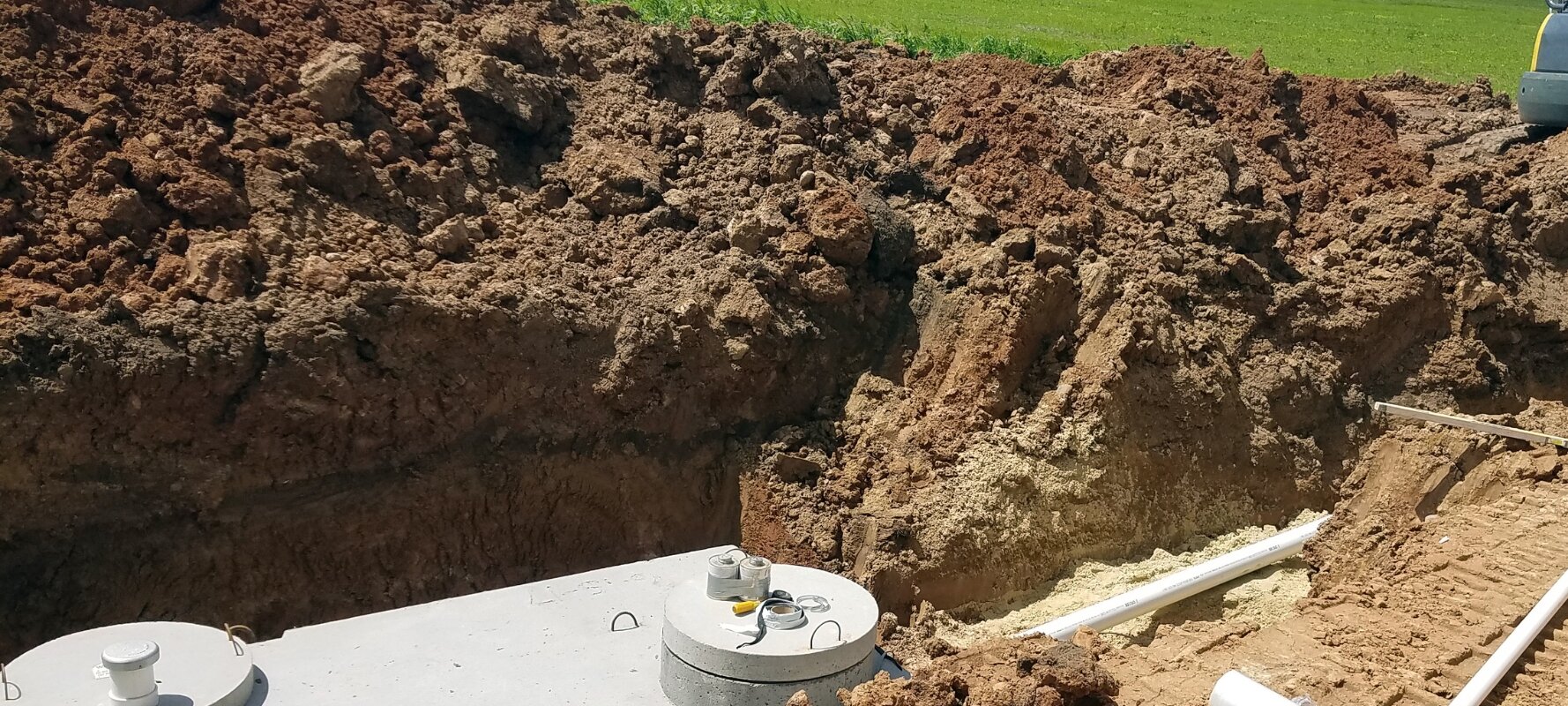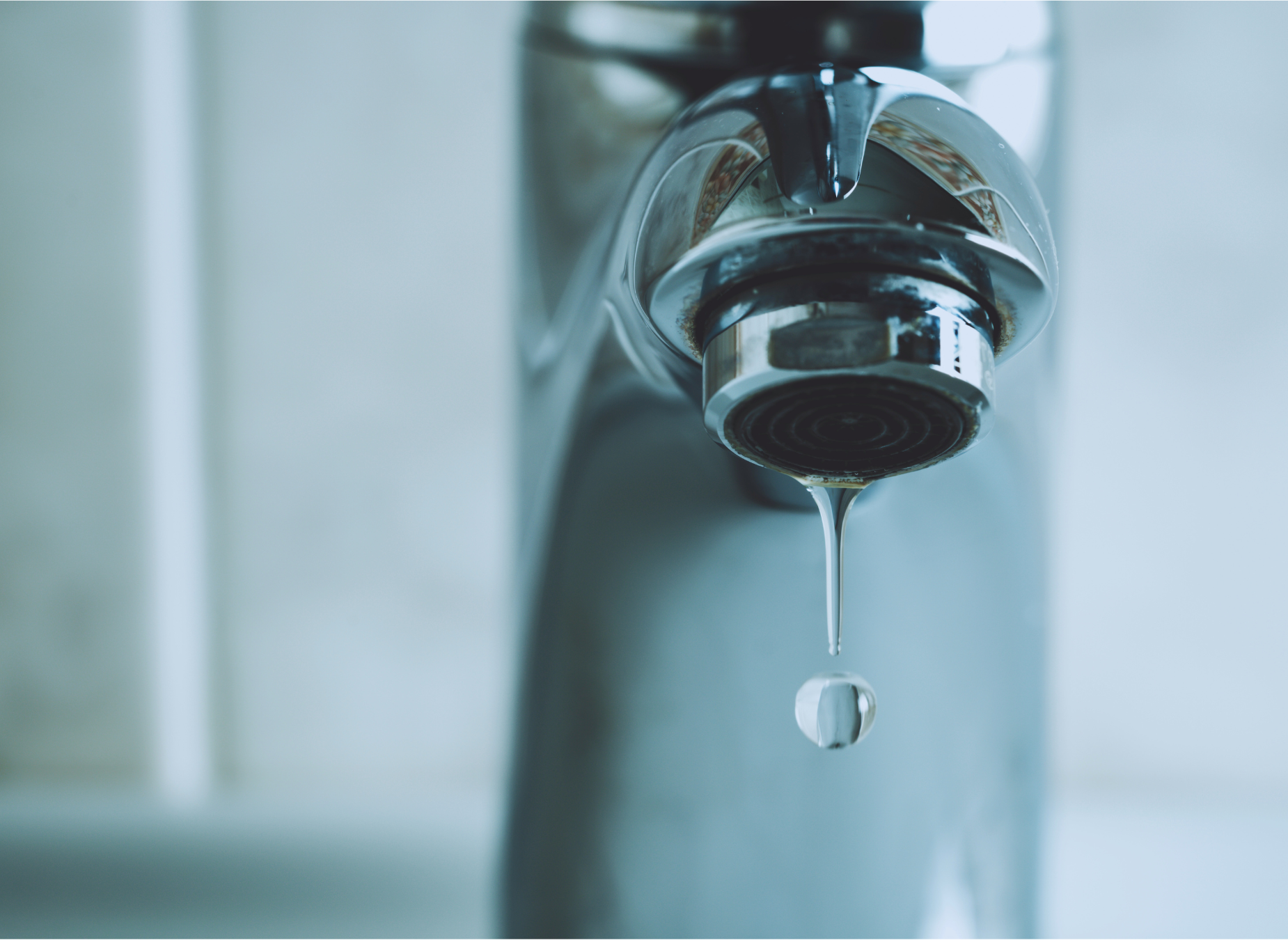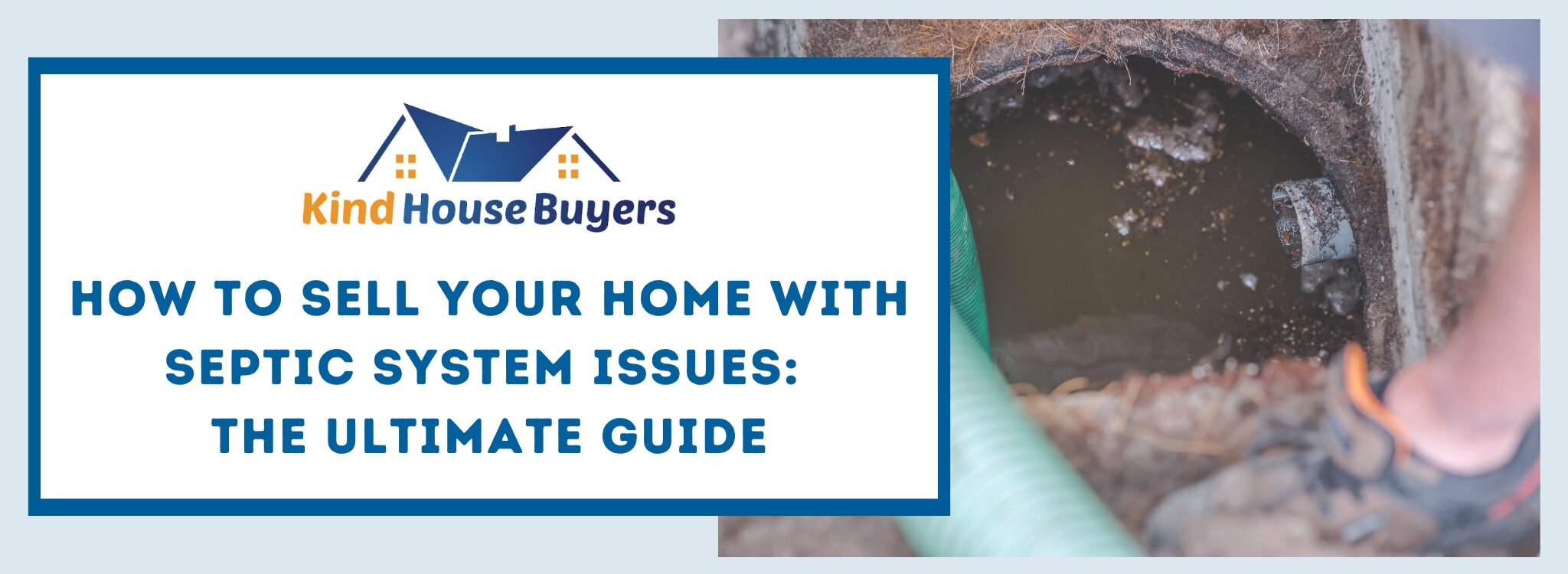
Can I Sell My House with a Failed Septic System In Washington?
A bad septic system is one of the worst things a homeowner could deal with. Not only is it gross, but in some states, it constitutes a code violation because it presents a health hazard not only to your family but to your community if not promptly dealt with.
But what if you can’t pony up the cash to solve this horrible problem? Can you just pack up your stuff and sell your home?
The good news is: YES, ABSOLUTELY!
In this article, we’ll explain your options for selling a house with septic tank problems while adhering to the law.
What is a septic system and why is it important?
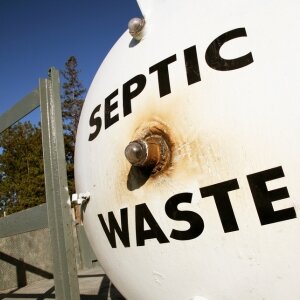
A septic system ensures that the gray water and wastewater leaving your home are safely treated to avoid contaminating the groundwater. Today, about 20% of households in Washington are dependent on their own septic system. These systems are common in rural areas, where there isn’t an available municipal sewer system to tap into, and typically consist of two components: a septic tank and a leach field/drain field.
A septic tank is a buried, watertight structure designed to receive and partially treat raw household wastewater through a series of chambers. This is accomplished by allowing the solids to settle before the wastewater moves on to the next, getting progressively “cleaner”, before finally discharging the treated liquid or effluent into the drain field.
The drain field is a shallow excavation with gravel or stone laid out on top of it. It filters the effluent and further treats it for microbes. Geotextile sheeting is placed on top of the gravel so that dirt, soil, and sand do not contaminate the filtration layer. Once the effluent passes through this final stage, it is deemed clean enough to be dispersed into the environment.
What are the signs of a bad septic system?
Slow Drains
When it suddenly takes a while before all the standing water is drained from your bathtubs, showers, or sinks, leaving a disgusting residue behind, it is typically the first sign that the system is backed up somewhere. Often, the blockage is local, and you can DIY using a drain auger from your neighborhood Home Depot. But if the sewage starts backing up, it’s probably time to call a plumber.
Foul odors emanating from the septic tank or the drain field
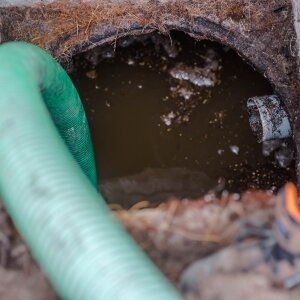
Fetid smells around your tank or drain field mean your system leaks and you have a failed septic tank. It is typically accompanied by standing water or muddy soil in the yard and can devolve into a health emergency if prompt action isn’t taken.
Lush grass growth on the drain field, even during dry periods
While it may be beautiful and refreshing to look at, especially in the summer months, when everything is brown and dry, it indicates that you have a failed septic system.
What can cause a septic system failure?
It is essential to know the possible causes of a failed septic system to prevent them from happening in the first place, saving you from that expensive phone call to your plumber. Here are some common issues and how you can address them:
Neglect
The primary cause of all septic system problems is neglect. Like your car, your septic tank must be looked at once in a while so that little hiccups can be immediately remedied and prevented from spiraling out of control.
In fact, the Environmental Protection Agency recommends that septic systems be inspected by a professional every three years. Additionally, the septic tank must be pumped out every three to five years so that all the sludge is flushed out and your system is working as intended.
Overuse
The capacity of a septic system is designed according to the number of bedrooms. If you go over the capacity, say, by subdividing bedrooms to accommodate more occupants, the system won’t be able to handle it. Sewage will back up, and in addition to being gross, it may cause irreparable damage to your plumbing.
When your septic tank backs up due to overuse, you can have it pumped and cleaned more frequently. This can cost between $289-$555, and yes, this can add up significantly over time, so you can consider upgrading your septic system altogether.
Damage Caused by Utility and Landscaping Work
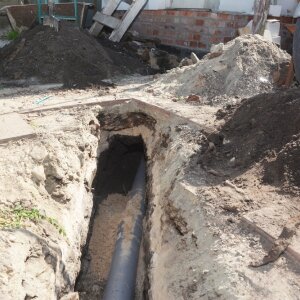
Septic systems are underground; if they aren’t properly marked and located in your home’s site plans, workmen performing renovation or landscaping work can accidentally damage them. Moreover, they might even park their vehicles on top of the septic tank and its drain field. The tank is not designed to carry so much weight above ground, so it can lead to structural failure.
Ground Movement
Expansive soils are a type of soil that contracts during dry periods and expands during rainy seasons. This can damage your septic tank, necessitating costly repairs. Proper planning will avert this inevitable headache down the line. For example, you can use pea gravel as your septic tank bed. Gravel isn’t sensitive to the changing seasons; it would also allow proper drainage for your tank.
Tree Root Infiltration
Tree roots can penetrate your tank, causing leaks and pooling sewage water in your yard. To prevent this, planning the location of your sewage systems and the landscaping should go hand in hand.
Clogging Up the System by Improper Waste Disposal
Flushing down tampons, diapers, sanitary pads, and other non-biodegradable materials can clog up your system and cause it to break down. Also, pouring oil down your drains is just as bad.
As a rule of thumb, there are only 3 P’s that you can flush down the toilet: pee, poo, and paper (toilet paper).
Improper Installation
Unfortunately, if your sanitary system is built wrong, no matter how careful you are, problems will come up.
If the septic tank site is not correctly excavated, the tank may be installed at the wrong pitch, creating runoff issues. Additionally, if the ground is not tested before excavation, it may not be up to adequately treating the wastewater, polluting nearby waterways and creating health problems in the community.
Hire a reputable plumbing company with extensive experience to avoid an expensive rework of your failed septic system later on.
Options to sell your home with failed septic systems in Washington
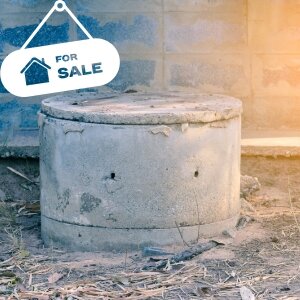
Since it’s perfectly legal to do so in most cases, the questions you should be asking yourself next are as follows:
Do I want to sell my house in Tacoma Washington for the best possible price?
If your priority is getting top dollar for your home and you have the time, money, and energy to make it happen, then you must make the repairs or replace the whole septic system before putting it on the market.
Do I want to sell my house fast?
On the other hand, if you think you can’t handle it anymore and you’re just seeking someone to take the problem property off your hands, then selling as-is is the way!
Option #1: Repair/Replace the failed septic system before the sale
When going with this option, the first thing you would need to do is book a professional inspection. It would show you how bad things are and what you must do to get your septic system working again. Upon getting this information, you can get quotes and timelines from plumbing companies.
While the rehabilitation costs may vary a lot depending on the size, age, location, and general condition of the property, they generally fall into the following ranges:
- Sewer line replacement or replacement – $55-250 per linear foot ($1,650-$7,500 for 30 ft of sewer line)
- Septic tank replacement – $3,000-$10,000
- Septic drain field replacement – $7,000
- Labor – $1,400-$4,100
- Permits – $320-$1,880
- Design and engineering fees – $500-$3,000
Design and engineering fees could be a hefty addition, but they’re worth it, especially if your house is old and the plumbing needs to be retrofitted to keep it up to code.
If you don’t have the budget to make the necessary repairs, you can check out the US EPA’s various financing programs.
It’s also worth mentioning that there are cases where you wouldn’t even need to replace the septic system. In some areas, there might already be a city sewer line that you could tap into. However, you would still need to decommission your septic tank, install new plumbing lines, and pay the associated permit and connection fees charged by your municipality. In Washington, connection fees could cost more than $20,000, which can be cost-prohibitive. It’s possible to split this cost with your neighbors if you can get them to convert their systems.
Once your septic system is functional again, you can sell your home at a fair market value or even higher, depending on market conditions. Furthermore, marketing your home to potential buyers will be much easier. Most end users look for move-in-ready homes without any issues, as this is usually a condition of their mortgage lender.
Option #2: Sell as-is
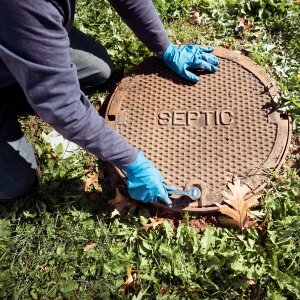
If you’re short on budget or unwilling to go through the hassles of rehabbing your property, you’d want to sell as-is.
On the plus side, you don’t need to cough up thousands of dollars, which you may or may not recoup by the time you sell the house later on, because who knows how the market will behave by then? However, since you’d essentially pass on the needed repair work to the buyer, expect your asking price to take a hit.
Nevertheless, if you sell now, you save plenty of time, so it balances out.
When selling as-is, you can go at it in 3 ways:
Sell with a real estate agent
A key advantage of working with a real estate agent is their wide reach of prospective buyers. In addition to that, they will do all the legwork in marketing, staging, negotiating, and closing the sale so that all you need to do is show up at the closing table and finalize the sale.
Of course this comes at a price, and a hefty one at that! Realtor commissions average 5-6%, and remember, since you would be selling as-is, you won’t be getting fair market value for the sale. Add in the closing costs, and it would really take a chunk of the money that should have gone into your pocket.
If this doesn’t sound like a good idea, then you could go…
For Sale by Owner (FSBO)
By going the FSBO route, you can save a lot on commissions and fees. Granted, you’ll be responsible for managing the sale from start to finish, but you’ll have control over variables such as the asking price, how you’d like to market the property, and how you’d like to conduct open houses.
If you want to save time and effort in marketing and listing your house yourself, you could…
Sell to a real estate investor
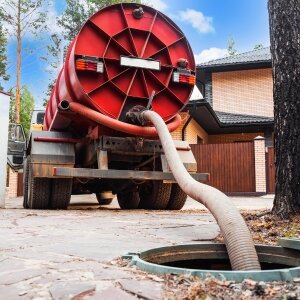
Selling to real estate investors in Washington is the quickest way to get cash for your home. They are familiar with the local laws, such as whether a house with a failed septic system can be legally purchased as an investment property. As these are expert buyers who seek out troubled properties, they can offer you an excellent deal in exchange.
You’d still be selling below market price, but these investors can close the sale quickly, some in as little as a week. They can do this because in some instances, they don’t even need to see the condition of your home–they’re ready for anything!
So, when selling to these seasoned buyers in Seattle WA, you get the following benefits: you avoid spending upfront on repairs, you save time and money on marketing, and you get cash for your home as soon as the ink dries on the dotted line!
Tips on selling your home with a sanitary and septic issue
Disclosure is important
Even in caveat emptor states, disclosing an underlying septic issue to prospective buyers is good practice. Transparency fosters trust and prevents a lawsuit later on.
Have your property inspected by a professional
Whether you’re doing the repairs yourself or skipping them to sell your home with a septic system in poor condition, it’s always good to start with an inspection. Knowing the exact state of your property is really helpful in determining your asking price: price it too high, and it will languish in the market; price it too low, and you might miss out on profits.
Decide how deep you want to go with the repairs
An inspection report on hand can help you decide what steps to take next. Maybe the issue isn’t so bad after all; for example, you only need to replace a couple of faucets and valves, and voila, your asking price will increase instantly! On the contrary, if repairs are too extensive, you can give the report to your buyer so they can address the issues themselves.
Frequently Asked Questions: Selling my house with septic failure in Washington
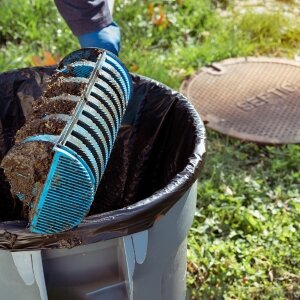
What are the things am I allowed to put into the septic system?
There is a simple rule that applies to septic systems: Whatever you won’t put in your body, you don’t put into your toilet, sink, or drain. Avoid disposing of harsh chemicals such as paints and acids. Garbage and other non-soluble detritus should go into trash cans.
How long does a septic systems last?
With routine maintenance, a properly constructed septic system can last between 15 and 40 years, depending on the material used. Concrete septic tanks are the most durable and almost indestructible, barring natural disasters such as hurricanes or a major earthquake. On the other hand, steel septic tanks are susceptible to rust, so they need to be replaced much sooner.
What is the possible impact of a failed septic system on my home sale?
Unfortunately, a septic failure is not just a cosmetic issue that future owners can live with without doing something about it. As a seller, it can impact you in three ways:
- you are expected to give a discount off the sale price to offset the repair costs;
- you have a shallower buyer pool; and,
- you can expect to wait a while longer to find a buyer.
As we’ve shown in the preceding sections, the good news is that you can bypass all these drawbacks by selling to an investor!
Final Thoughts: Selling a House With Septic Tank Problems in Washington is Possible!
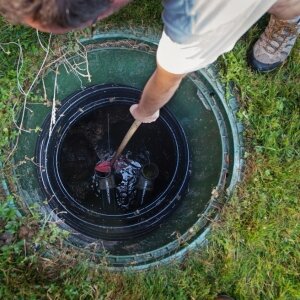
Are you tired of dealing with recurrent septic system issues and ready to sell? We’re here for you!
Here at Kind House Buyers, we buy all kinds of real estate in Washington: mobile homes, condos, town homes, and bungalows in absolutely any condition!
Remember, when selling a house with septic tank problems to Kind House Buyers, you don’t need to reinstall new plumbing lines or make any fixes whatsoever. Just fill out our form below to start the process immediately, and we’ll do everything we can to make the sale as seamless and stress-free as possible for you!
By working with us, you don’t risk leaving your property in the market for longer than it should be. What’s more, we can close in as fast as 7 days, and you get all the cash specified in our offer! You also don’t need to worry about closing costs–it’s on us!
Call us at (253) 216-2497, ask for Keith or Krixelle, and we can give you a quick, no-obligation cash offer!
Other Blog Articles You May Enjoy
Additional Resources To Help Sell Your House In Washington
Sell your Tacoma house without a Realtor 75% Faster
No Hidden Fees or Commissions. Sell Your House As-Is And Close On The Day Of Your Choice. Fill Out The Form Below.

Author: Keith Sant
Keith Sant is a real estate investor and entrepreneur who enjoys helping others by sharing useful real estate information. Keith’s goal is to educate home sellers so they can make the best decisions for their real estate problems. When Keith is not working, he enjoys cycling and traveling with his wife, Krixelle.
He has been featured on numerous new and real estate platforms, including Zillow, HomeLight, Better Homes & Gardens, Realtor.com, MSN, and Yahoo Finance.
| DRAINFIELD | LEACH FIELD | OUTLAY | CASH | HOMELIGHT | |
| SUNDAE | PLUMBING | INVESTORS | HOUSE PRICE | REALTOR | LENDER |
| TERMS OF USE | TREE ROOTS | ROOTS | PRIVACY POLICY | PRIVACY | TRANSPARENCY |
| RISK | GRASS | LENDING | LOANS | HOME INSPECTORS | HOME INSPECTION |
| GROUNDWATER | FLOODING | FLOODS | FLOODED | FEES | EFFLUENT |
| ENVIRONMENTAL PROTECTION AGENCY | ENVIRONMENTAL PROTECTION AGENCY (EPA) | TREE | SOLIDS | PRICING | UNPLEASANT ODOR |
| MORTGAGE | MARKET VALUE | DOLLAR | DEMAND | COMPANY | BLOG |
| A CASH BUYER | A WORKING SEPTIC SYSTEM | STREET ADDRESS ADDRESS LINE |

